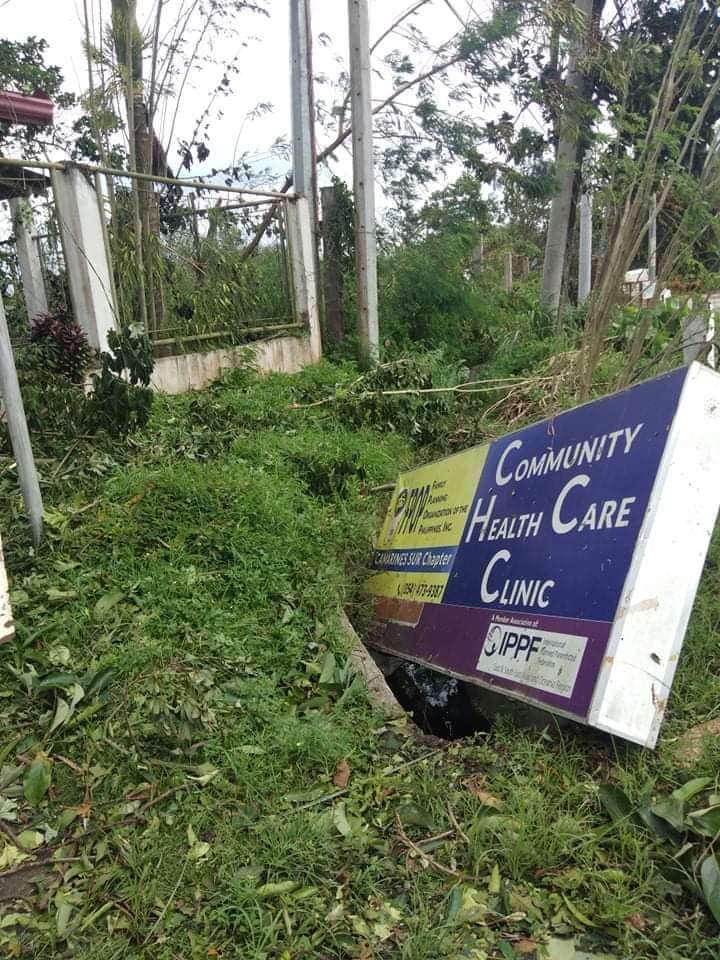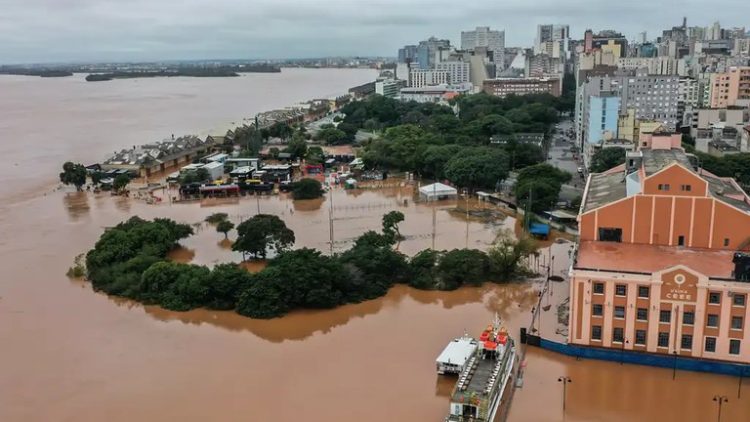Haz click aquí para leer este texto en español.
Women's health in the age of climate change
By Eugenia López Uribe, IPPF ACRO Regional Director
Can you imagine a world where all women are free to make decisions about their sexuality and well-being? Gender-based violence, lack of investment in quality health services resulting in limited services, obstructive health workers, insufficient supplies and little or inaccurate information are just some of the barriers women face in accessing their right to sexual and reproductive health. As we commemorate International Day of Action for Women's Health, I would like to emphasise how women's health is further threatened by the climate crisis.
Let’s start by answering what is sexual and reproductive health? When we talk about sexual and reproductive health for women, we mean, among other things, that they can:
- Have safe and satisfying sex lives.
- Decide about their reproduction: decide whether they want to be mothers or not, as well as the number and spacing of their children.
- Decide their sexual and romantic partners.
- To live and explore their sexual orientation and gender identity with freedom and safety.
- Access affordable and quality sexuality-related health services.
For women's right to health to be guaranteed, it is vital that they have access to quality, accessible and affordable sexual and reproductive health services. These services should include contraception, prevention and treatment of sexually transmitted infections (STIs), prenatal care, childbirth and postpartum care, sexual violence care and counselling, abortion care, fertility care, cervical cancer prevention and treatment, accurate information, among others. For a variety of reasons, women and girls still face barriers to receiving these services in a comprehensive manner. This is even more complex in the context of the current climate emergency.
How does the climate crisis affect women's access to health?
Gender inequalities, poverty, discrimination and the lack of policies that guarantee access to education and health services are factors that limit women's enjoyment of sexual and reproductive health. Today, the consequences of the climate crisis have become an additional obstacle. According to UN data, 80% of people displaced by climate change are women and girls. The gender-differentiated effect cannot go unnoticed.
Here are some examples:
- The destruction of critical infrastructure, such as health clinics and transportation routes, caused by extreme weather events can prevent women and girls from reaching health services or make them unavailable to them.
- In humanitarian response work during emergency situations, sexual and reproductive health services are often underfunded. Because they are not considered priority services, women are forced to go through their pregnancies, childbirths, postpartum and menstrual cycles under the worst conditions.
- In addition, research has found significant associations between air pollution and heat exposure and risk pregnancy outcomes, including preterm birth, low birth weight and stillbirth.
- Extreme weather events caused by climate change increase the lack of access to clean and safe water. As well as being vital to people's overall health, lack of water presents a profound challenge to menstrual management, pregnancy care, the administration of certain contraceptive methods and the provision of safe abortion.

The climate crisis has many other harmful impacts on women's lives. When women are displaced, they are at greater risk of violence, including sexual violence. Living in emergency camps or crossing migration routes exposes them to dangers such as human trafficking, early and forced marriages and unions, and exploitative labour.
A terrible example is the current crisis in Rio Grande do Sul, Brazil, where massive flooding has forced more than 600,000 people to flee their homes and has affected more than 2.3 million Brazilians. In addition, as of May 25, 165 people have been killed, 130 are missing and 2.1 million people have been affected. Gestos, IPPF's Collaborating Partner in Brazil, notes with indignation and concern in this statement the cases of sexual violence against women - including minors - in shelters.

An urgent call to action
At this moment in history, we all understand that inequalities and marginalisation are key factors that increase vulnerability to the impacts of the climate crisis. Addressing gender inequality and other forms of marginalisation is therefore crucial in the context of the current climate emergency.
A key tool for doing so is to mandate governments to implement the Sendai Framework for Disaster Risk Reduction, which articulates with the 2030 Agenda for Sustainable Development and explicitly targets access to reproductive health services among important measures to improve resilience and empower people disproportionately affected by disasters. This declaration, also signed in 2015 by UN Member States, commits ‘to promote universal access to Sexual and Reproductive Health services with a view to fostering healthy societies.
Thus, on this International Day of Action for Women's Health, we call on governments to remind them it is urgent to invest in strengthening resilience and adaptive capacity, both to the slow impacts of the climate crisis and to its more immediate effects. We need to prioritize women, youth and girls in all their diversity, as they are the ones who bear the weight of the crisis.
At IPPF, we are committed to, and are making significant progress to:
- Strengthen evidence linking Sexual and Reproductive Health and Rights and the climate crisis;
- Support communities to adapt to the impacts of the crisis;
- Reduce our own carbon footprint and the impacts of our internal policies.
However, our efforts as a Federation and as part of civil society alliances will not be enough. Governments and decision-makers must recognise and support access to sexual and reproductive health and rights as fundamental to climate change adaptation and resilience. It is imperative that they place human rights, environmental justice and gender equality at the centre of efforts to address the climate crisis.
We must address today the responsibility of countries to reduce their emissions and advocate for low- and middle-income countries to have the financial conditions necessary to respond and adapt to the climate crisis. Women and girls can wait no longer.
This text was written by Eugenia López Uribe, Regional Director at IPPF ACRO.
Eugenia is an experienced advocate for gender equality and sexual and reproductive rights, promoting innovation in the delivery of health services from a human rights perspective. She has worked with rural and indigenous people, adolescents, youth, LGBTQI+ populations, sex workers and women with HIV in Latin America and the Caribbean.
when
region
Las Américas y el Caribe
Subject
Climate Crisis, Sexual Health, Abortion Care









